One of the most vital steps in preparing the soil for planting is tilling it. Tilling is essential because of the benefits it offers.
When the soil is tilled, weed growth is inhibited, aeration is improved, and some insects are removed.
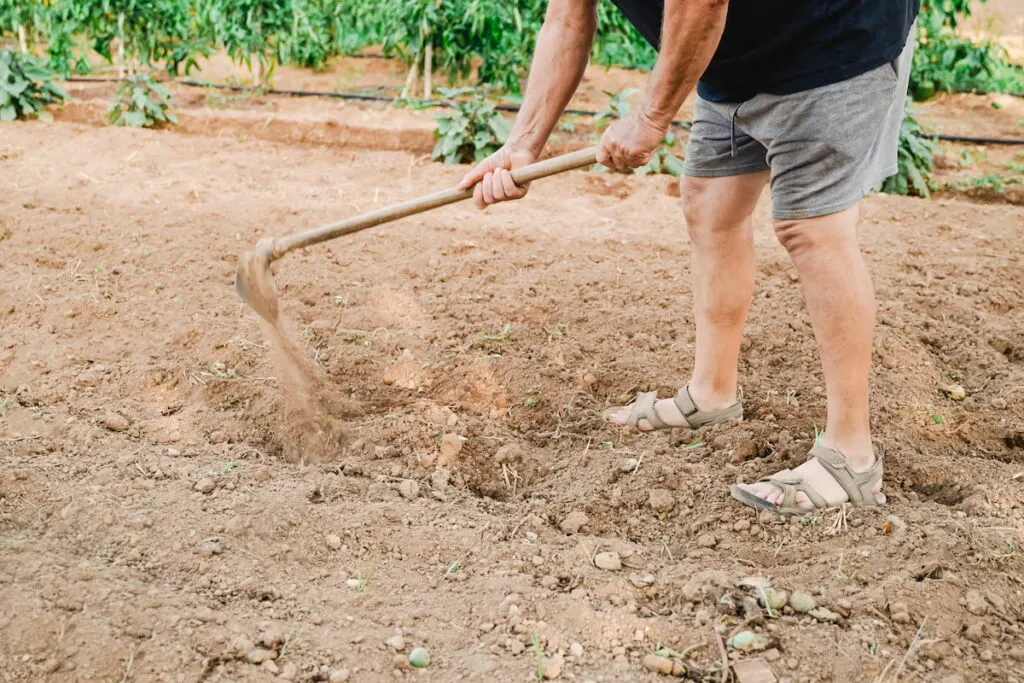
But did you know that after tilling the soil, you should not plant immediately?
Well, if you did not know, now you do. Beyond this, there are other tips you should be aware of when tilling the soil. We shall touch on some of these tips in this article.
Table of Contents
Can You Plant Immediately After Tilling?
It is not recommended that you plant immediately after tilling. Instead, you should wait some time.
A waiting period allows organic materials, compost, microorganisms, and soil enhancements to begin breaking down and providing nutrients to the soil.
Beyond the above, the condition of the soil also determines if one can plant immediately after tilling.
For one, soil that is very wet after tilling should not be worked further. You should wait until it stops forming large clumps and is a bit dry before planting.
Also, if the soil contains a significant amount of weeds, wait a while before planting. This way, you can be sure the weeds are dead before sowing seeds or planting.
If the tilling was not done early enough and planting season is rapidly approaching its end, you may elect to plant immediately.
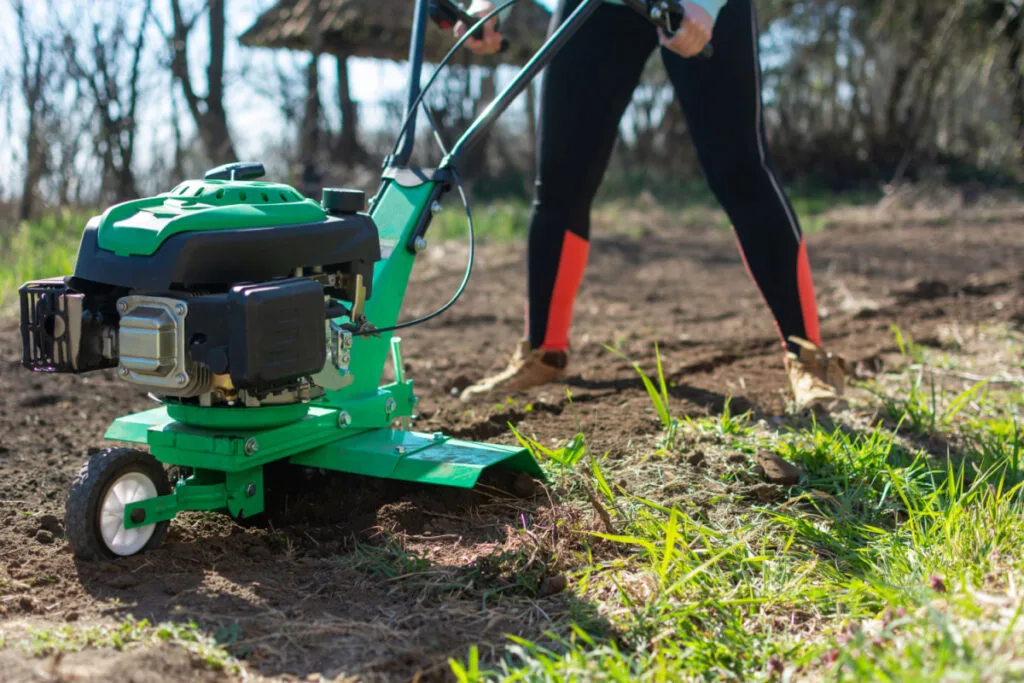
How Long Should You Wait to Plant After Tilling?
You could wait only a few days to plant after tilling. But it is better to wait for at least a week before planting.
Some sources recommend waiting for 2 to 3 weeks after tilling before planting. During this period, some of the beneficial microorganisms will have recovered and resumed improving the soil.
During the waiting period, most of the exposed weeds will have died. It is also expected that more soil nutrients would be available.
What to Do After Tilling a Yard?
Once you are done tilling, the yard will be filled with debris, bumps, rocks, and grass clusters. You have to clean off the surface and rake it out smooth in preparation for lawn seeding.
To remove the leftover debris, rake through the soil in straight rows from one end of the tilled area to the other.
After getting the debris off the area, level the soil using the blunt side of the rake, creating a smooth seedbed.
When all this is done, monitor the yard during the waiting period before you plant. If any weeds show up, rake the soil again to remove them.
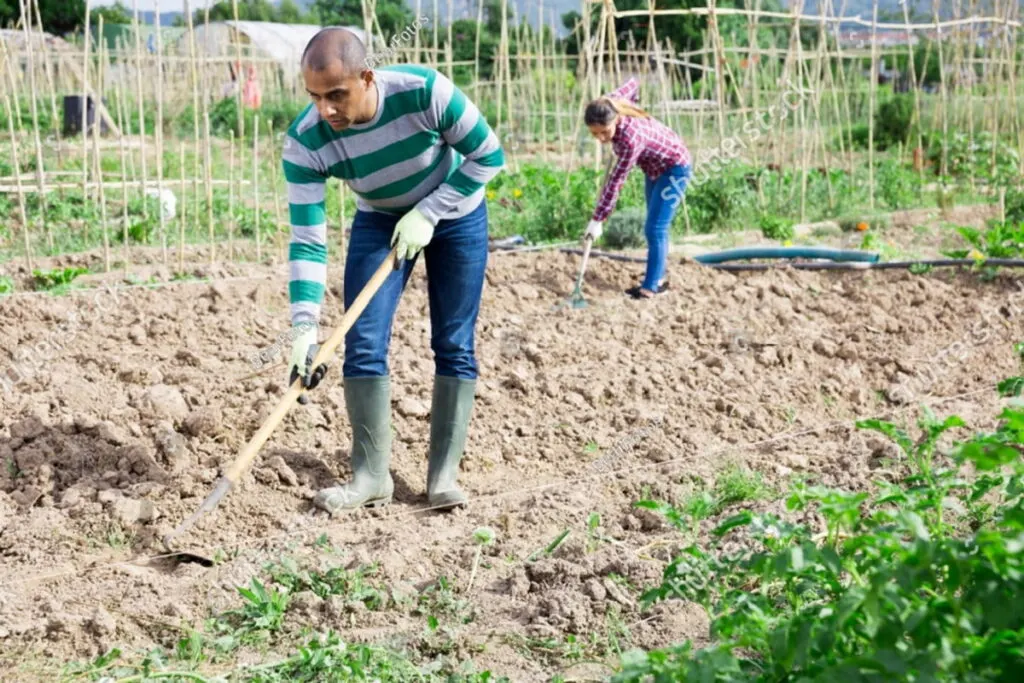
Is It Better to Till Wet or Dry?
The soil should neither be too wet nor too dry when you are tilling it.
While wet soil is easy to till, it causes soil particles to squeeze together. In the end, the soil hardens and inhibits the growth of seedlings and the germination of seeds.
On the other hand, it is quite hard to till dry soil. But beyond that, when you do till dry soil, the particles are broken into fine dust.
The implication of this is that the soil would be more prone to erosion – whether by water or by wind.
Overall, it is best to till the soil when its moisture content is in-between. Not too wet or too dry, just moist enough to preserve soil health while allowing easy tilling.
You may pack some soil into your hands and try to crumble it before tilling. If it has a crumbly texture, you may get on with tilling it.
However, if the soil is sticky or if it resists crumbling, it is still wet. Wait a few days to allow it to dry a bit.
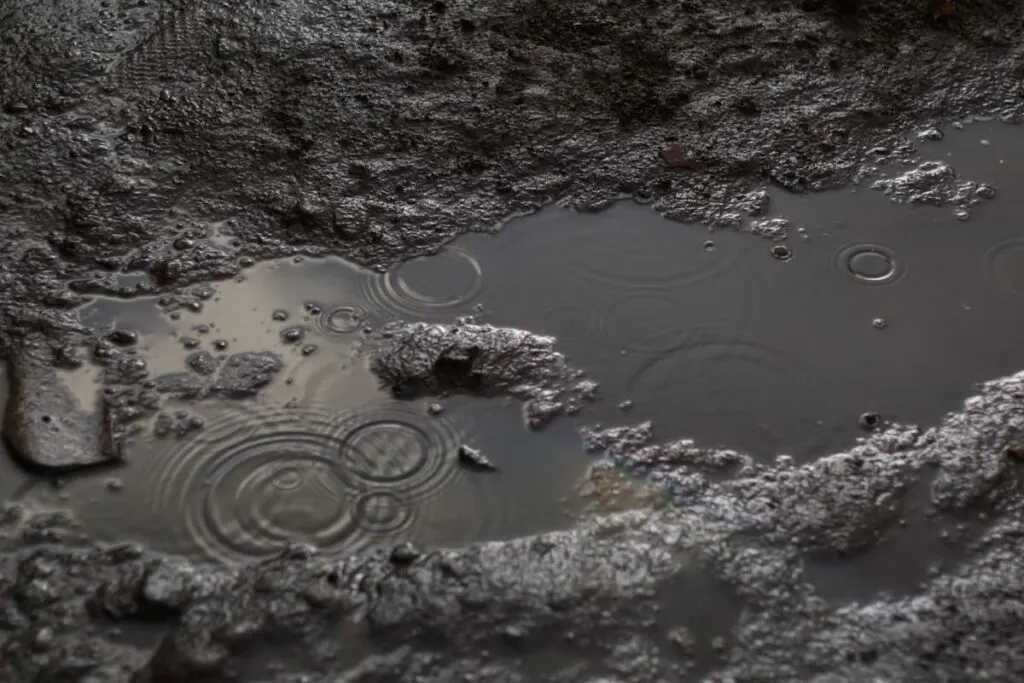
Do I Need to Remove Grass After Tilling?
You need to remove any grass from your yard after tilling. If you do not, the grass may regrow from the seeds or roots present in or on the leftover grass.
So, to avoid having issues when you eventually cultivate your plants, it is best to remove any grass clumps after tilling.
Should I Kill Weeds Before Tilling?
Killing weeds before tilling is most applicable if you are working on a piece of land with a high weed presence.
If you do not kill weeds before tilling, you may just clog the tines of the tiller.
You may also propagate the growth of the weeds by cutting their roots or burying their seeds. However, if they are killed before you till this would most likely not happen.
To kill weeds, you may apply chemicals (herbicides), or you may use non-chemical methods.
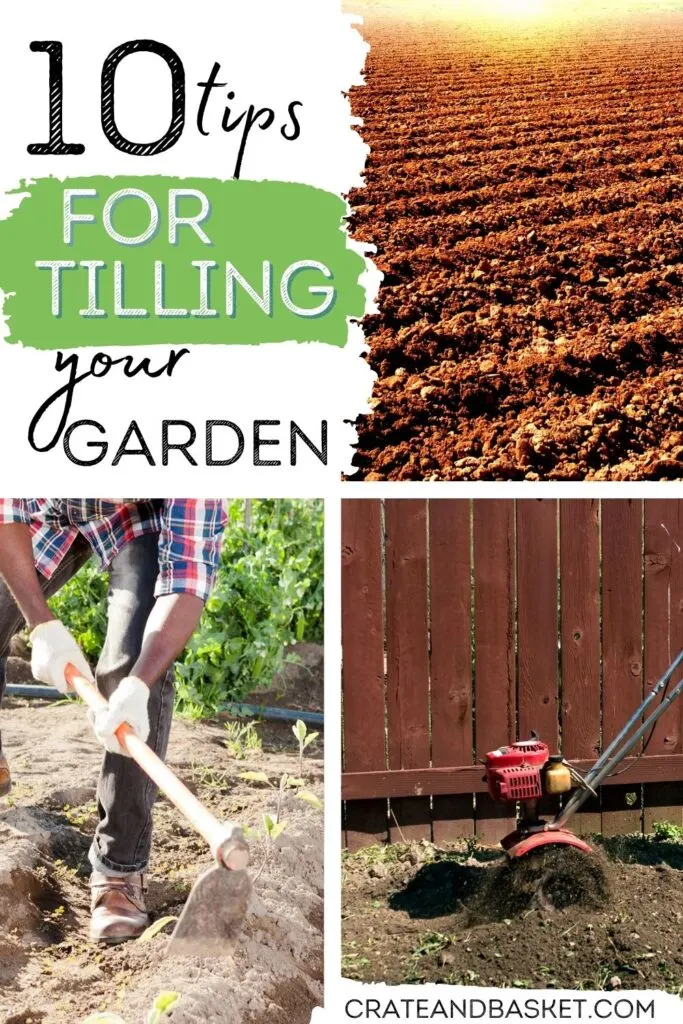
When Should You Till the Soil?
It is best to till the soil when the soil becomes warm and dry. For this reason, most people till the soil in spring.
Generally, the soil should be at a temperature of at least 60°F before you start tilling.
Should I Fertilize Before Tilling?
Tilling ensures that any fertilizer you apply to the soil is well-absorbed. However, it is best to apply fertilizer after tilling, not before.
If you apply fertilizer before tilling, then there is a chance that some of the nutrients will be too deep for the plants to reach and they will just leach away.
Is Aerating the Same as Tilling?
While aerating and tilling are quite similar, there are some differences.
Aerating is done after planting when the plants have started growing. On the other hand, tilling is done before planting.
The goal of tilling is to ensure that the soil has optimal texture and nutrients are more accessible. Tilling also ensures that water is well-distributed, weeds are removed, and the soil is aerated.
Aerating focuses mainly on ensuring that the soil is well-aerated. It may, however, also help with removing weeds.
Resources
- https://www.troybilt.com/en_US/knowledge-tb-benefits-of-tilling.html
- https://www.quora.com/Can-you-plant-immediately-after-tilling
- https://homeguides.sfgate.com/soon-plant-after-tilling-103919.html
- https://www.troybilt.com/en_US/knowledge-tb-dos-and-donts-of-tilling.html
- https://homeguides.sfgate.com/rake-out-rocks-44626.html
- https://www.gardeningknowhow.com/garden-how-to/soil-fertilizers/avoiding-wet-soil-tilling.htm
- https://homeguides.sfgate.com/tips-rototilling-hard-soil-36359.html
- https://homeguides.sfgate.com/remove-grass-after-tilling-garden-73346.html
- https://www.ehow.com/info_8786286_should-weeds-removed-before-tilling.html
- https://homeguides.sfgate.com/kill-weeds-vegetable-garden-preparation-46031.html
- https://www.gardeningknowhow.com/garden-how-to/soil-fertilizers/how-to-till-a-garden-tilling-your-soil.htm
- https://gilmour.com/tilling-garden-soil
- https://www.fischerenv.com/blog/what-is-the-difference-between-aerating-and-tilling/

Power Equipment Warehouse
Tuesday 29th of June 2021
This is one of the best posts offering tilling tips. We've found that many people till the soil when it is either too cold or too wet (or both!) creating more issues than ever.